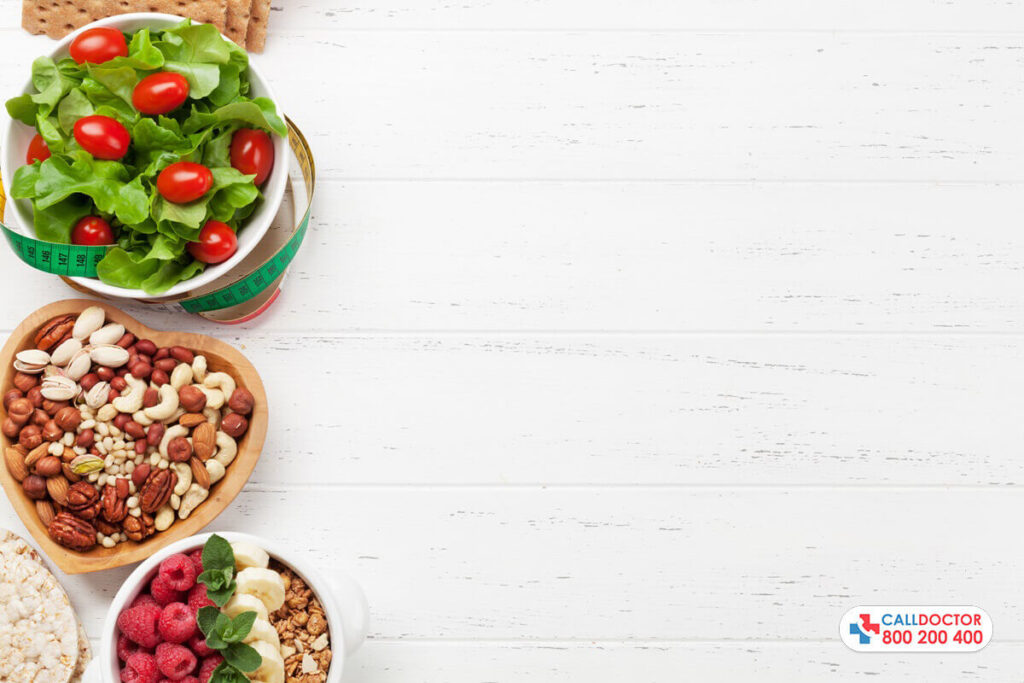If you’ve ever felt that anxious knot in your stomach before a big meeting or found yourself tossing and turning at night due to racing thoughts, you’re not alone. Anxiety affects millions of people worldwide, and the demands and pressures of daily life often trigger it. But what if there was a simple way to ease your anxiety that didn’t involve a trip to the pharmacy or a therapist’s office? Turns out, the answer might be sitting right in your kitchen. Emerging research suggests that the foods you eat can have a powerful effect on your mental health. The proper diet can help regulate mood, reduce stress, and even fight anxiety. Here are some insights on how food impacts anxiety. This article provides practical tips for building an anti-anxiety diet that works for you.
The Connection Between Diet and Mental Health
The link between the gut and the brain is powerful, and emerging research shows that what you eat can significantly impact your mood, stress levels, and overall mental well-being. The gut is often referred to as the “second brain” due to its complex network of neurons, and it plays a crucial role in regulating emotions through the production of neurotransmitters such as serotonin. About 90% of serotonin, a chemical that contributes to feelings of happiness, is produced in the gut.
Anti-anxiety diet foods nourish the gut and support the brain’s ability to function properly. By choosing the right foods, you can help manage anxiety and enhance your mental clarity and mood.
Key Nutrients That Help Reduce Anxiety
Several essential nutrients can support mental health and reduce anxiety. Incorporating these into your diet may help manage anxiety symptoms over time.
Omega-3 Fatty Acids
Omega-3 fatty acids in foods like salmon, flaxseeds, and walnuts are well-known for their brain-boosting properties. These healthy fats are crucial in maintaining brain health and supporting the production of neurotransmitters that regulate mood. Studies have shown that people who consume more omega-3s have a lower risk of developing anxiety and depression.
Magnesium
Magnesium is a mineral known for its calming effects on the nervous system. It helps regulate blood pressure, muscle function, and sleep, all of which are closely linked to anxiety levels. Foods rich in magnesium include spinach, almonds, pumpkin seeds, and avocados. Magnesium supplements can also be taken if your diet lacks this essential nutrient.
Probiotics
Gut health is directly related to mental health. Probiotics, found in fermented foods such as yogurt, and kimchi, help balance the gut microbiome. A healthy gut microbiome can improve digestion and boost the production of serotonin, which may reduce feelings of anxiety and stress.
Foods That Trigger Anxiety
While certain foods can help alleviate anxiety, others can make it worse. It’s essential to be mindful of what you’re consuming, especially if you’re looking to reduce anxiety.
Caffeine
Caffeine, found in coffee, tea, and energy drinks, is a well-known stimulant that can increase heart rate and alertness. However, for those who suffer from anxiety, caffeine can exacerbate symptoms by causing jitters, restlessness, and even panic attacks. If you find that caffeine worsens your anxiety, it’s a good idea to reduce or eliminate your intake.
Sugar and Refined Carbohydrates
Foods high in sugar and refined carbohydrates, such as candy, soda, and white bread, can cause blood sugar spikes followed by crashes. This instability in blood sugar levels can trigger irritability, fatigue, and anxiety. It’s important to avoid sugary snacks and opt for complex carbohydrates like whole grains and vegetables, which provide steady energy and are gentler on your body.
Processed Foods
Highly processed foods, which often contain artificial additives and preservatives, can lead to inflammation in the body, including the brain. This inflammation is linked to mood disorders, including anxiety. By reducing your intake of processed foods like fast food, packaged snacks, and sugary drinks, you can help lower anxiety levels and support overall mental health.

How an Anti-Anxiety Diet Can Improve Sleep?
Sleep is closely connected to anxiety. Poor sleep can aggravate anxiety symptoms, while anxiety can disrupt sleep. Thankfully, a diet rich in particular nutrients can promote better sleep, which in turn helps reduce stress.
Anxiety on the Menu? Let’s Change That with Food
Tryptophan-Rich Foods
Tryptophan is an amino acid found in foods like turkey, nuts, seeds, and dairy products. It is a precursor to serotonin, the “feel-good” neurotransmitter. Consuming tryptophan-rich foods before bed can help your body produce more serotonin and melatonin, which are essential for good sleep.
Herbal Teas
Herbal teas such as chamomile and valerian root are known for their calming properties. Drinking herbal tea before bed can help relax the mind and body, making it easier to fall asleep.
Practical Tips for Incorporating an Anti-Anxiety Diet
Eating to reduce anxiety doesn’t have to be complicated. Here are some simple strategies for building an anti-anxiety diet:
- Plan Your Meals
Meal planning ensures you consistently eat foods that promote mental health. Try to include a variety of nutrient-dense foods in each meal, such as leafy greens, lean proteins, healthy fats, and whole grains.
- Avoid Skipping Meals
Skipping meals can lead to blood sugar fluctuations, which may increase anxiety. Regular meals and snacks can help maintain stable blood sugar levels throughout the day.
- Stay Hydrated
Dehydration can affect mood and cognitive function, leading to feelings of irritability and anxiety. Drink plenty of water throughout the day to stay hydrated.

FAQs About Anti-Anxiety Diet
1. What foods are best for reducing anxiety?
Foods rich in omega-3 fatty acids (like salmon), magnesium (like spinach), and probiotics (like yogurt) are excellent choices for reducing anxiety. These nutrients support brain function and help regulate mood.
2. How long does it take to see results from an anti-anxiety diet?
It may take a few weeks or even months to notice significant changes. However, incorporating anti-anxiety foods and reducing triggers can start to improve your mood and anxiety levels within a short period.
3. Can food alone replace medication for anxiety?
While a healthy diet can help alleviate anxiety, it is not a substitute for professional medical treatment. A balanced diet can work in conjunction with therapy and medications to improve mental health.
4. Are there any supplements that can help with anxiety?
Certain supplements like magnesium, omega-3 fatty acids, and B vitamins can support anxiety management. Always consult with a healthcare provider before adding any supplements to your routine.
5. Can an anti-anxiety diet help with other mental health conditions?
Yes, many of the same nutrients that support anxiety also help with depression, stress, and mood disorders. A balanced diet that nourishes your body and brain can improve overall mental health.
A Calm Mind Begins with a Healthy Plate
An anti-anxiety diet can play a pivotal role in managing anxiety and improving mental health. By focusing on nutrient-dense foods that support brain function, such as omega-3 fatty acids, magnesium, and probiotics, and avoiding anxiety-triggering substances like caffeine and sugar, you can take control of your well-being. While diet alone may not be a cure, it can complement other treatments, providing a holistic approach to mental health management.
Remember, the foods you eat don’t just fuel your body—they also shape your mind. So, make conscious, informed choices, and give your brain the nutrition it needs to thrive.




